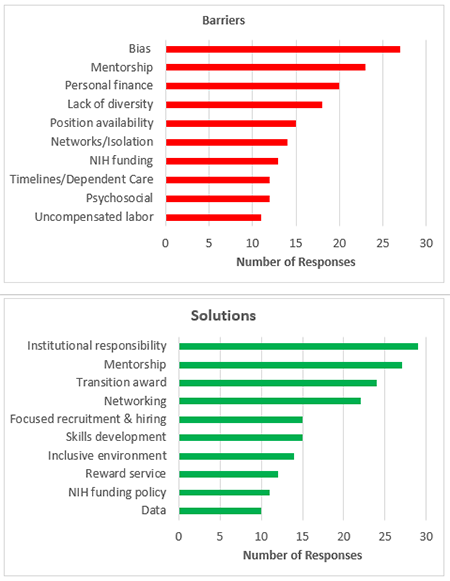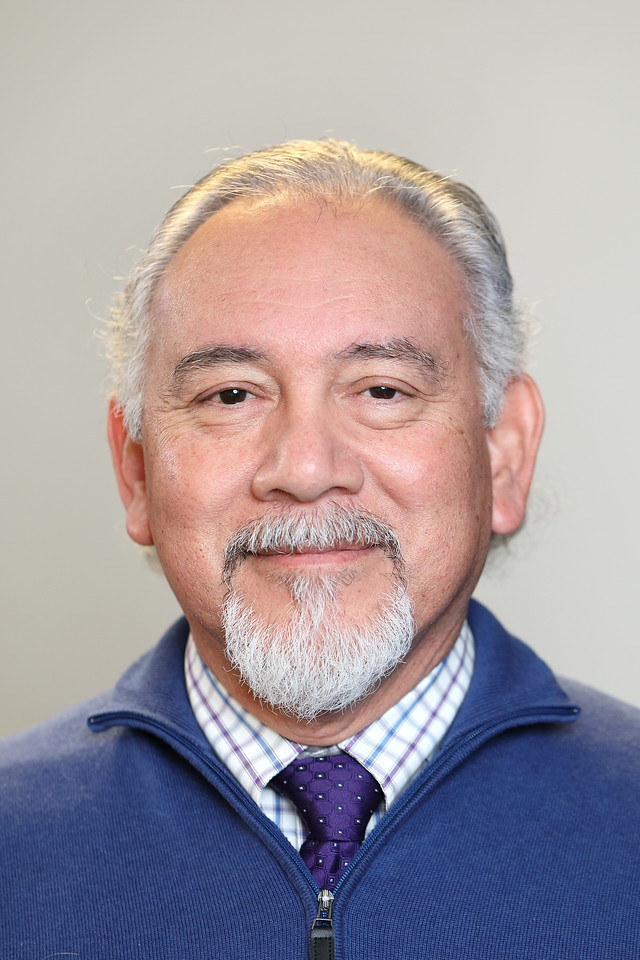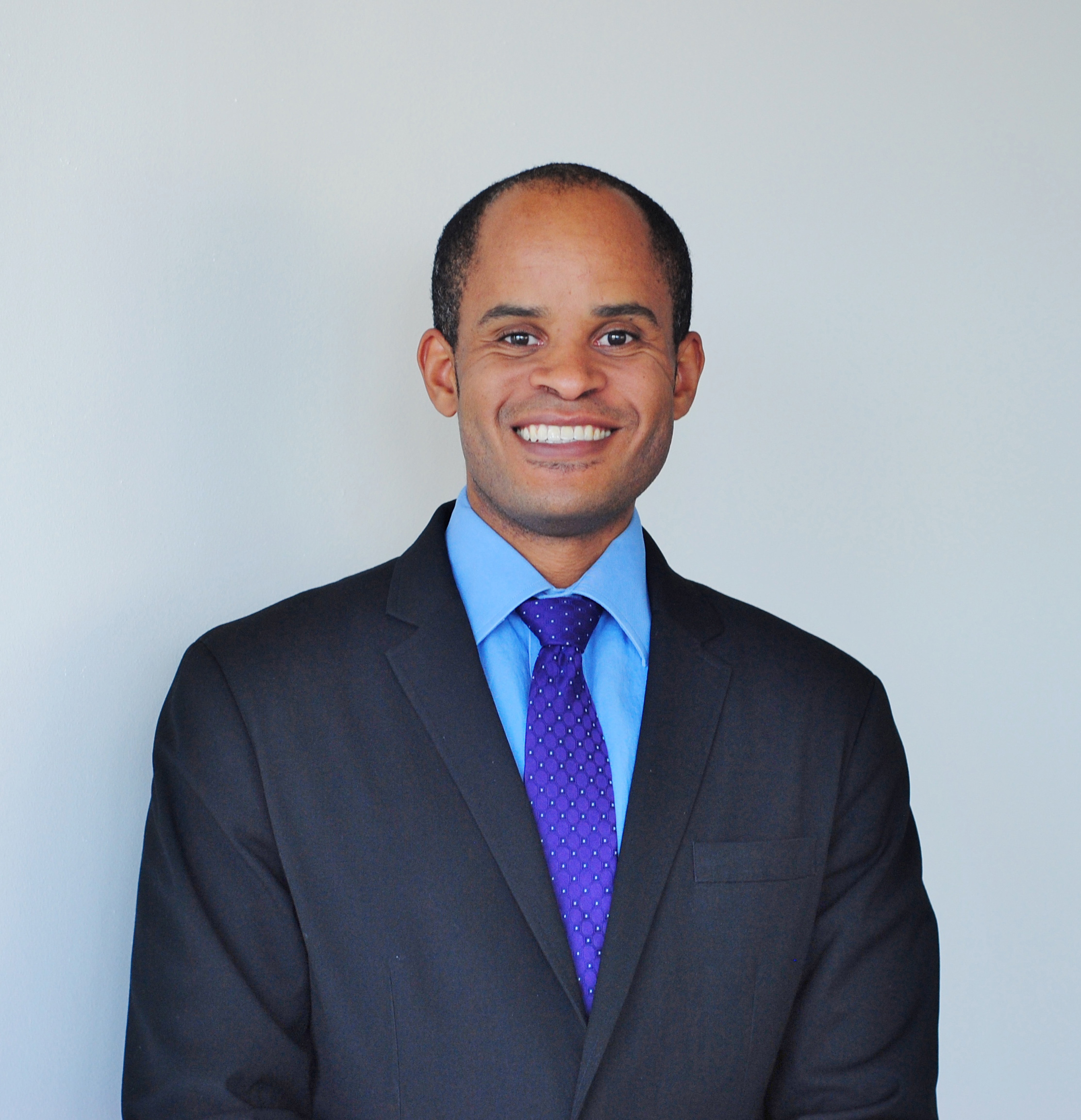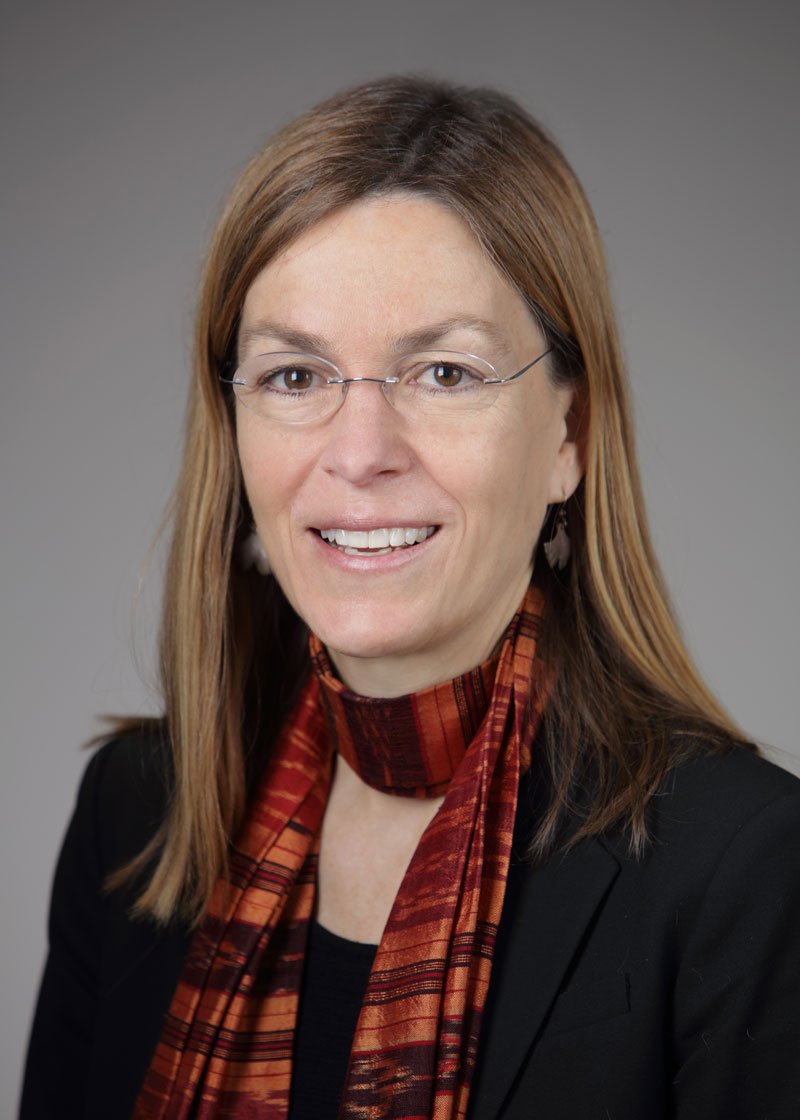This page is historical material reflecting the Feedback Loop Blog as it existed on
November 8, 2018. This page is no longer updated and links to external websites
and some internal pages may not work.
November 8, 2018
Archived: Your Perspectives: Strategies for Enhancing Postdoctoral Career Transitions to Promote Faculty Diversity
Continuing our longstanding commitment to train the next generation of biomedical scientists and support the careers of students and postdoctoral scientists from diverse backgrounds, for example groups underrepresented in biomedical research, we sought input from the community through a request for information (RFI) on strategies to enhance successful postdoctoral career transitions to promote faculty diversity, specifically in research-intensive institutions. The RFI was open May 24 to July 20, 2018, and received a total of 89 unique responses from stakeholders including postdoctoral scientists, faculty members, and professional societies.
Figure 1 shows the most frequently mentioned barriers scientists from underrepresented groups face as they progress from postdoctoral training into faculty positions at research-intensive institutions, and potential strategies to overcome these barriers. The five most frequently noted barriers were bias, mentorship, personal finances, current lack of faculty diversity, and position availability. The five most frequently noted potential solutions included institutional responsibility, enhanced mentorship, transitional awards, increased networking, and focused recruitment and hiring/skills development (tied).
 NIGMS thanks everyone who took the time to respond to the RFI and will take this input into consideration when developing new funding opportunity announcements to enhance postdoctoral career transitions to promote faculty diversity. For more details about the analysis, including a list of current strategies and resources to enhance faculty diversity employed by the federal government, private funders, institutions, and societies identified through the RFI, we encourage you to explore the report.
NIGMS thanks everyone who took the time to respond to the RFI and will take this input into consideration when developing new funding opportunity announcements to enhance postdoctoral career transitions to promote faculty diversity. For more details about the analysis, including a list of current strategies and resources to enhance faculty diversity employed by the federal government, private funders, institutions, and societies identified through the RFI, we encourage you to explore the report.

Figure 1. Major Barriers to Faculty Diversity and Potential Solutions in RFI Responses. Bar charts showing the number of RFI responses in which a barrier (top) or solution (bottom) was mentioned. A total of 89 unique responses were received for the RFI.



